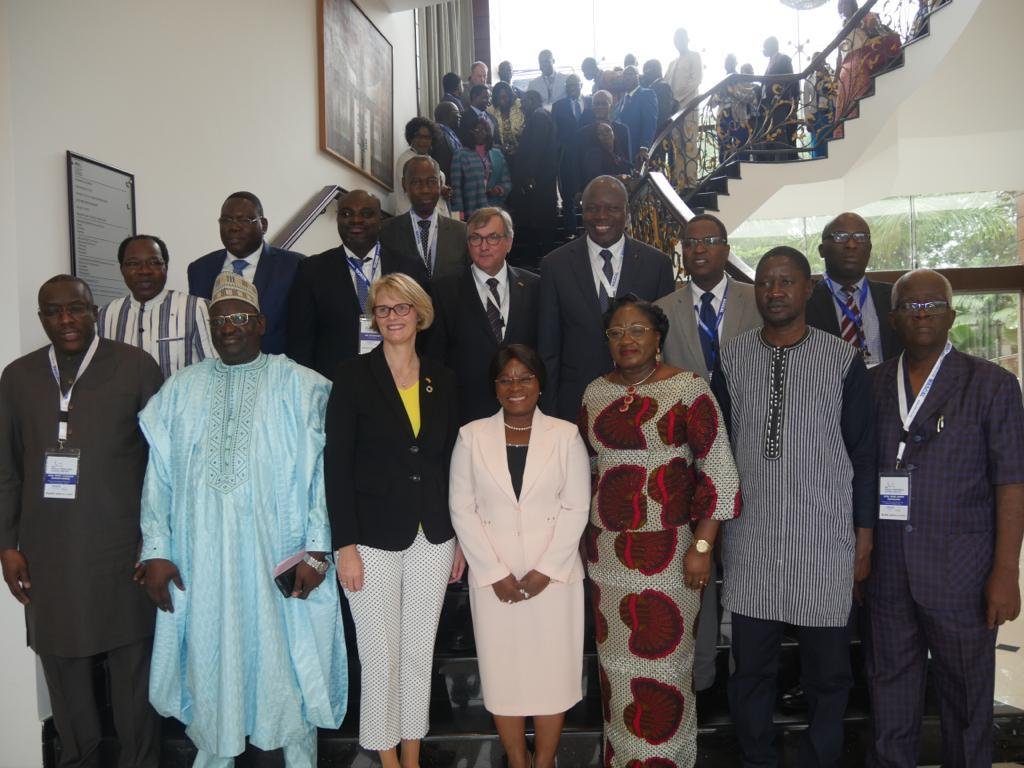The West African Science Service Center on Climate Change and Adapted Land Use (WASCAL) has held its 3rd West African Ministerial Council Meeting in Ghana, since its inception in 2010.
The essence of this year’s meeting was designed to showcase strategies by policy makers in ensuring a sustainable fight against the climate change challenge in the sub-region.
The theme for the meeting was “deepening partnerships between German and West-African Policy makers towards the realization of sustainable development goal 13 on climate change action.”
The event brought together ministers from the sub-region and Germany including Mrs Anja Karliczek, German federal minister of education and research, Prof Kwabena Frimpong Boateng minister of environment, Science Technology and Innovation Ghana, Mrs Marie-Odile Attanasso, Minister of higher education and scientific research of the Republic of Benin, and Mrs Patricia Appiagyei Deputy for Environment, amongst others.
Mrs Appiagyei delivering the welcome address explained that the fight against climate change which is mainly attributed to man-made activities is progressively becoming more intense as a result of its unremitting adverse impact on people’s sources of livelihood and survival.4
She commended WASCAL for the pivotal role it is playing to combat climate change through its three key focus areas: Climate Services, Research and Capacity Building.
She also described the call for adequate and timely provision of financial resources, technology transfer and capacity building to enable member countries effectively adapt to the negative impacts of climate change as very appropriate.
Mrs Appiagyei said “an institution such as WASCAL must therefore be supported and sustained to harness regional efforts for our collective benefits. This can be achieved by creating the evidences that support finding solutions and answers to the major questions in the field of climate change and the sustainable use of land.”
She said government is implementing climate change programmes through flagship programs that aim at promoting renewable energy; lowering deforestation; supporting adoption of clean cooking and pursuing low carbon emissions and clean electricity supply.
“We have invested nearly 20 million dollars in the savannah dry lands to provide access to water to vulnerable farmers in the long dry season, input supply and promotion of the adoption of sustainable land technologies for rural farmers,” she said.
She added “we have developed a plastic policy that aims to deal with the whole value chain of plastic management including the circular economy, this will provide the green job opportunities in recycling, and waste to plastic technologies.”
Ms Marie Odile Attanasso, Minister of Higher Education and Scientific Research of Benin, said “after seven good years of existence, WASCAL has without any doubt achieved commendable results in terms of both technical and human capacity building and scientific research, which is the foundation for the development of climate services.”
Mrs Attanasso who also doubles as the President of the Council of Ministers of WASCAL added “in my capacity as President of the WASCAL Council of Ministers, I urge you, Excellencies, Ministers, to invest yourself personally so that our respective States fulfil their duties and obligations towards our precious common organization, WASCAL. It is only on this condition that we could together ensure the sustainability of this essential strategic monitoring organization for the West African region, which is close to our hearts.
For the past eight years, about 50 million euros have so far been invested by the Government of the Federal Republic of Germany in WASCAL.
This significant contribution has enabled the development of basic infrastructure to capacitate the institution to fulfill its mission as planned including the commissioned Head Office building, amongst others.
Source: Ghana/Starrfm.com.gh/103.5FM/Senanu Damilola Wemakor




